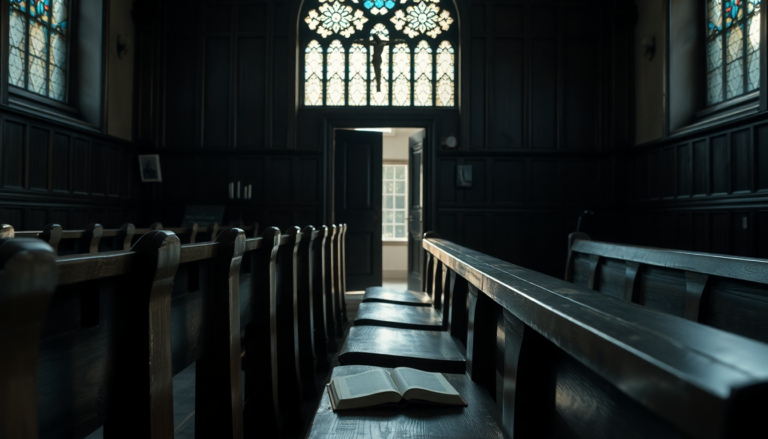Argomenti trattati
In a world where institutions are supposed to stand as bastions of morality, the recent revelations surrounding clerical abuse scandals have left many reeling, questioning everything they thought they knew. The film “Spotlight,” directed by Tom McCarthy, delves into this crisis with a rawness that can’t be ignored. It’s not just a film; it’s a mirror held up to society, reflecting the dark underbelly of a community that turned a blind eye for far too long. McCarthy, a product of the very culture he critiques, has a unique perspective that adds layers of complexity to the conversation. So, let’s dive into this messy cocktail of faith, betrayal, and the quest for truth—because who doesn’t love a good scandal?
Power dynamics and societal complicity
The narrative woven throughout “Spotlight” isn’t just about a handful of bad apples; it’s about the rotting tree that allowed them to thrive. McCarthy points out that the real issue is the *societal complicity* that enables abuse to fester. It’s a chilling realization, isn’t it? We’re not just talking about a few rogue priests; we’re discussing an entire institution that has repeatedly dropped the ball. When did we start treating accountability like a dirty word?
The film serves as a love letter to investigative journalism, showcasing how these reporters weren’t just uncovering a scandal, but also holding a mirror to a community that had chosen to ignore the truth. It begs the question: How did we let it get this far? The Archdiocese of Boston, as depicted in the film, actively aided and abetted the abuse by covering up crimes instead of confronting them. It’s a grim reminder that, in tightly-knit communities, everyone needs to take a long, hard look in the mirror and ask, “What did I know? What could I have done differently?”
The personal impact of institutional betrayal
For McCarthy, this isn’t just some abstract concept; it’s personal. He grew up in an *Irish Catholic Boston*, a community that shaped him, infused with both pride and betrayal. His connection to this narrative is palpable, and it’s evident that his background colors the way he presents the story. There’s a fine line between loyalty to one’s community and the moral obligation to speak out against its failings.
How many good people have been complicit in the silence? McCarthy captures this conundrum beautifully: it’s not merely about individuals; it’s about a collective instinct to protect the institution at all costs. In the quest for fairness and justice, that instinct can be a double-edged sword. It’s a sobering thought that the very fabric of community can become a shroud for wrongdoing.
Confronting uncomfortable truths
The conversations that arise from the film are painful yet necessary. McCarthy’s own parents, devout Catholics, found themselves grappling with the reality presented in “Spotlight.” It’s a testament to how deeply ingrained these issues are, and how discussing them can feel like ripping off a band-aid—painful but essential for healing. The film catalyzes discussions that many would prefer to sweep under the rug.
Imagine the awkward family dinners where the topic of clerical abuse comes up. “Let’s not talk about that, it’s too painful!” But isn’t that precisely the problem? Ignoring the elephant in the room only allows it to grow larger. McCarthy illustrates that these discussions are not just about uncovering the past but also about preventing future horrors. It’s a tough pill to swallow, but it’s one that must be ingested for the sake of future generations.
When it comes down to it, institutions are run by flawed individuals, and that’s where the danger lies. That’s why the vigilance McCarthy advocates for is not just a suggestion; it’s a necessity.
So here we are—left to ponder the unsettling reality that our faith in institutions can sometimes blind us to their faults. McCarthy’s “Spotlight” is not just a film; it’s an urgent call to arms for accountability and transparency. The question remains: Will we heed that call, or will we continue to let darkness reign? Perhaps, in the end, the most provocative question is whether we’re willing to face our own complicity in the silence. After all, one voice can ignite a fire, but a collective silence can snuff it out. Isn’t it time we turned the lights back on?

